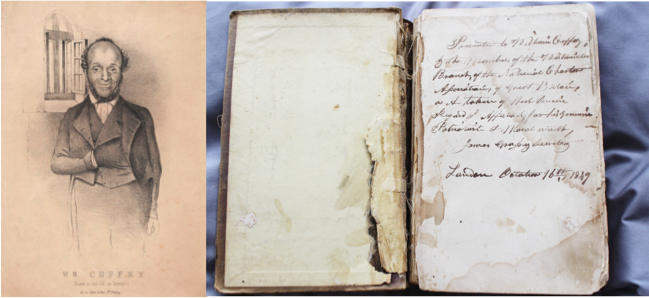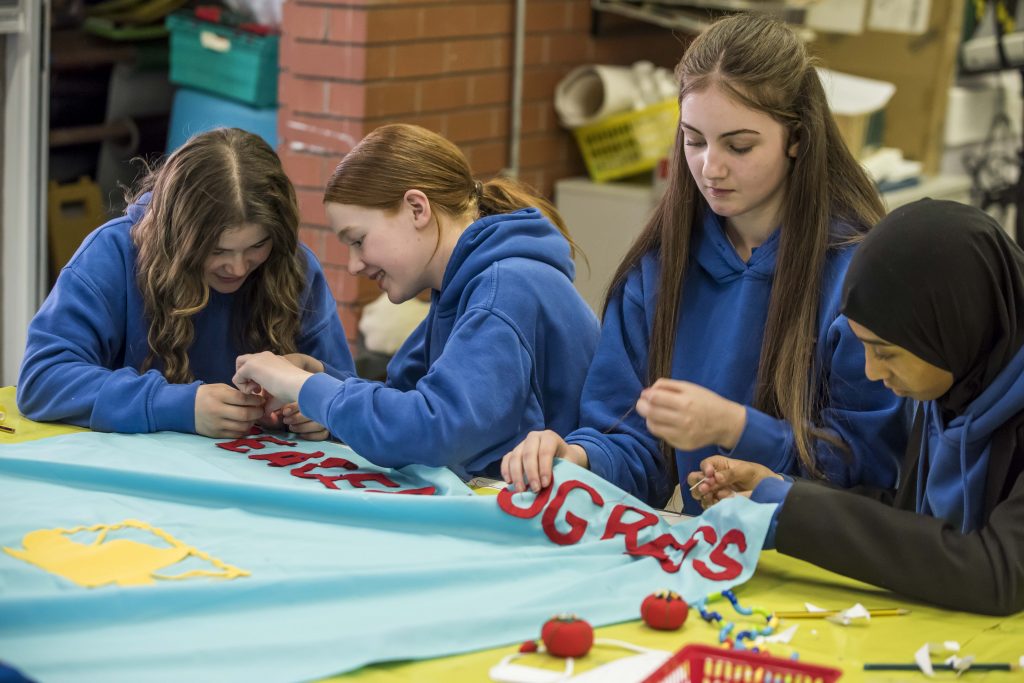In October 2024 a new report by the Commission on the Future of Oracy Education in England was published.
The recommendation is for oracy to be woven across all aspects of education – to become the fourth ‘r’ alongside reading, writing, and arithmetic. The aim is for children and young people to be equipped to ask questions, articulate ideas, formulate arguments, listen, and disagree agreeably.
It’s been a hot topic, making headlines in the education press and even as a discussion point on ‘The Rest is Politics’ popular podcast and television series hosted by Alastair Campbell and Rory Stewart. At People’s History Museum (PHM) oracy is one of the focal areas of our new Learning Programme, which has been in development over the last two years. The oracy & confidence building workshop supports the building of a student’s confidence, skills and knowledge to communicate ideas to help them change the world, and is now available for schools and youth groups (ages 9 – 16) to book.
Here we explore the subject that everyone is talking about in greater depth with PHM Learning Officer Liz Thorpe, and to understand the benefits to young people.
Oracy is the ability to be able to express yourself fluently and communicate effectively with other people.
The four skills of oracy are listening, speaking, presenting, and debating.
Oracy is a skill that enables you to advocate for your own human rights and those of others. It is directly linked to our freedom of speech.
Oracy is also the foundation of democracy. To build future leaders, thinkers, and active compassionate citizens who take part in their communities, we all need to be able to express ourselves clearly, build empathy by listening to others, challenge information and decisions, and work together to push for change.
And in our everyday lives oracy is important for our relationships (personal and professional) and how we connect to each other.

Memorable speeches have been key to every important reform movement from the Chartists and women’s suffrage to trade unions and the fight for disabled people and LGBTQIA+ rights. Speeches can command audiences, communicate information, and even provide a source of entertainment.
Historically proclamations, events, political views, and commentary were shared in large sheets of printed paper, called broadsides. The broadside ballads were also designed to be sung and often the sellers would recite or perform them to attract business and spread the message. In the 19th century people would congregate in large numbers to hear speakers on hustings. It is estimated that that 60,000 people gathered to hear Henry Hunt speak at St Peter’s Field in Manchester on 16 August 1819 – an event that became known as the Peterloo Massacre; a major happening in Manchester’s history, and a defining moment for Britain’s democracy.
Speeches have the power to inspire, motivate, and unite people, and to give hope. One example is ‘Organise, Organise, Organise!’ – a speech by poet, novelist, and Chartist Ernest Charles Jones, that can be heard in a Speakers’ Corner on the galleries at People’s History Museum.
Oracy equips children and young people to thrive in democratic and civic life. Helping them learn how to exercise their rights, express their identities, and to find their voices.
Oracy is an essential part of the UK National Curriculum. The curriculum outlines specific skills that students should acquire at different stages of their education, including listening, speaking, presenting, and debating.
People’s History Museum’s bookable workshops support the teaching of oracy within an environment that will also inspire the learning process. There is a focus on active listening techniques, structured discussions to help participants articulate opinions, and practicing activities to build confidence speaking in public.
At PHM your first thought might be a political speech, however participants are asked to also think about how people have used poetry, spoken word, songs, debate, and even just having a conversation with someone as important examples of oracy; used to communicate a message or get involved in democratic process.
Drawing on PHM’s collection together with examples from popular culture, students are invited to the museum to play with words, find their rhythm, and test out techniques to leave a lasting impression on an audience.

PHM’s oracy & confidence building workshop focuses on three elements: writing, performing, and confidence (conquering nerves).
Participants work with a professional creative writing facilitator to create and deliver a speech on a topic that personally matters to them.
Book an oracy & confidence building workshop for your group. Workshops are booked on a first come first served basis.
Also available to book is a banner making workshop. Step into the role of banner makers, create a striking design and deciding how best to communicate a strong, memorable message. Oracy also runs though the framework of the banner making workshop; in group work, sharing ideas, and participants advocating for their own ideas.
Both workshops were made possible with Art Fund support.